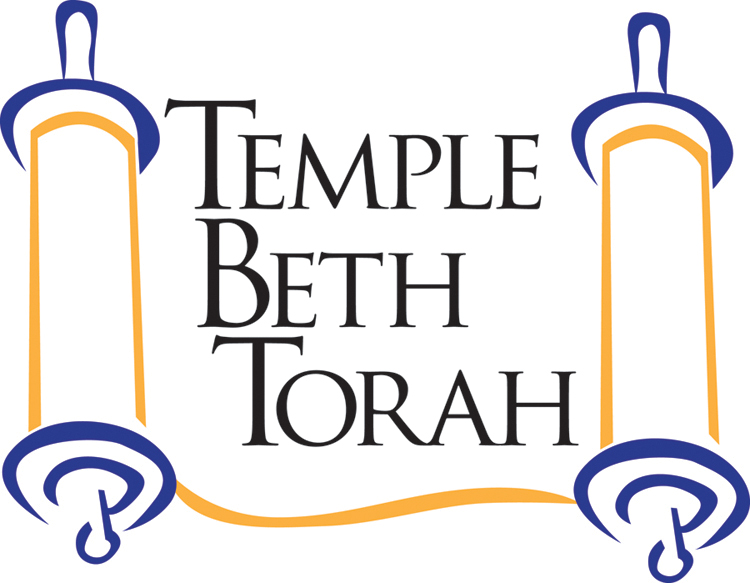A Note from the High Holidays Chair
This year our Rosh Hashanah celebration will be unlike any we have ever had at TBT. Unlike past years, each family will be celebrating on its own and the High Holidays spirit that we bring into our homes this year is more important than ever. Embrace the traditional foods that bring the taste of the High Holy days alive: apples and honey for a sweet new year, pomegranates, honey cake, round challah with raisins, carrots, spinach, fish, brisket, and whatever else will bring the special flavor of these days into your home. Even though we will not be gathering together in the synagogue, I encourage you to take the time to dress up for the online services, and — if you have them — put on a tallit and kippah. All of this helps to deepen our experience of the High Holy Days.
Last year when I agreed to be TBT’s High Holidays Chair, the job I signed on for was very different from the one it has become. Who could have anticipated this pandemic that is keeping us apart during the High Holy days when we long to be together?
A group of TBT members has worked with Rabbi Block and Cantor Lauren over the past months to plan online services for the High Holidays. We have tried to instill them with as much of the meaning, the spirit, and the depth of these services as we can while preserving TBT’s signature warmth and openness. We hope you will join us this year and that you will find some fulfillment in our services. Many of our members have volunteered to participate in them, and you will get to see many familiar faces – and perhaps a few new ones as well — during our High Holidays services.
We usually have a small Tashlich observance after our morning Rosh Hashanah service at TBT. This year you may wish to observe this tradition on your own. Rabbi Block’s article on Tashlich provides us with an understanding of its significance and some suggestions for holding the ceremony on your own.
From my family to yours: Sincerest wishes for L’Shanah Tovah U’Metukah.
Heidi Hirsh
Cast Away Your Sins – Tashlich
Sometime between the end of Rosh Hashanah services and the first day of Sukkot, we go to a lake, river, stream of water, sea, or a sprinkler or hose in your own backyard, and cast our misdeeds, bad behavior, and “sins” into the water.
This is the special tradition we call “Tashlich”. The teachings of the prophet Micah inspired the Tashlich ceremony:
“Who is a God like you, who pardons sin and forgives the transgression of the remnant of his inheritance? You do not stay angry forever but delight to show mercy.
“You will again have compassion on us; you will tread our sins underfoot and hurl all our iniquities into the depths of the sea.
“You will be faithful to Jacob, and show love to Abraham, as you pledged on oath to our ancestors in days long ago.”
God casts our sins into the depths of the sea. During Tashlich we symbolically cast away our sins, relieving ourselves of the burdens which we carry with us from the year gone by. We purify our hearts and our souls so that we may move forward as the new year begins.
Historically bread was thrown into the water to represent our sins. It was considered good luck to throw the bread into a body of water with fish. If you choose this option consider casting away your sins in the form of fish food!
As we toss each item into the water, we remember an aspect of our behavior that we want to “cast away” and say it out loud or silently to ourselves. Throwing breadcrumbs into bodies of natural water may disturb the ecosystem’s nutrient balance, so consider substituting more nature-friendly elements like small stones or pebbles, leaves, pine needles, untreated wood chips, seashells or twigs instead.
Tashlich is not explicitly mentioned in the Torah or the Talmud, so there’s no formal liturgy. You are free to create a ceremony that resonates with your Judaism.
The prophet Ezekiel tells us to:
“Rid yourselves of all the offenses you have committed, and get a new heart and a new spirit.”
Psalm 32 can be recited before we list the behaviors we wish to “cast away”:
Then I acknowledged my sin to you
and did not cover up my iniquity.
I said, “I will confess
my transgressions to the Lord.”
And you forgave
the guilt of my sin.
Therefore let all the faithful pray to you
while you may be found;
surely the rising of the mighty waters
will not reach them.
A Prayer for Tashlich
A prayer by Rabbi Rachel Barenblat
Here I am again
ready to let go of my mistakes.
Help me to release myself
from all the ways I’ve missed the mark.
Help me to stop carrying
the karmic baggage of my poor choices.
As I cast this bread upon the waters
lift my troubles off my shoulders.
Help me to know that last year is over,
washed away like crumbs in the current.
Open my heart to blessing and gratitude.
Renew my soul as the dew renews the grasses.
And we say together: Amen
Rabbi Block
